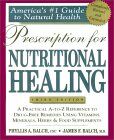Allergies Childhood
By Louise Tenney
An allergy is the body's defense against a substance which is not normally harmful to the body.
Pollens, cosmetics, dust, drugs, insect bites and stings, chemicals, foods, molds, and animal hair, to name a few, cannot really hurt the body. They are known as allergens.
Just about any substance may cause an allergic reaction in someone, somewhere.
The immune system acts to safeguard the body against foreign elements by using the white blood cells to fight them off. When the body wrongly identifies a substance as an invader, the white blood cells can cause symptoms and damage, often causing more harm than the invader.
The allergic reaction can become an illness.
There is no clear cut answer as to why some people develop allergies while others do not. Heredity certainly plays a part in the development of allergies. Children of parents with allergies more frequently have allergies.
Babies who are not breastfed more often acquire allergies as well. This is why it is important, if possible, to breastfeed the infant. There are many benefits transferred to the child.
There also seems to be emotional and stress-related allergy problems. Stress does cause some suppression of the immune system, which may lead to the allergic response. Stress may not always be emotional. It can come in other ways which attack the body's immune system and destroy its defenses. An onslaught of toxins is stressful, as in the case of sudden exposure to toxic chemicals. This causes an overload on the immune system.
All children come in contact with some form of foreign agents daily. They come in the form of germs, viruses, environmental chemicals, pollutants, pollen, etc. A child under stress is especially vulnerable whether it is physical, emotional, or environmental. This is why it is so important to keep the immune system in top shape. When the immune system is working well, it can take care of the foreign invaders through the mucous membranes.
The sinuses send the allergens down the throat, where they travel to the digestive tract which neutralizes and destroys them. The tonsils, adenoids, and lymphatic system each play an important role in the process of eliminating these harmful substances.
Some include:
Bedwetting
Nocturnal Enuresis commonly called bedwetting which persists beyond the age of three may be linked to allergies. Some believe the major allergens affecting this problem are milk and milk products, wheat, eggs, corn, chocolate, and pork. Inhalants such as pollens, house dust, molds, and animal hair may also cause bedwetting.
The problems seems to be in the decreased bladder capacities due to allergies. Fluid builds up in the layers of the bladder and cause it to swell. When the allergen is removed, the bladder will most likely return to normal size.
Hyperactivity
Allergies may also be linked to hyperkinetic activity in children. The most common offenders include milk, wheat, eggs, chocolate, sugar and food dyes. Some children can't sit still, concentrate, control emotions and sleep. This may be due to allergies which cause them to feel out of control and unable to sit for any amount of time.
Respiratory
The respiratory system is often linked to allergies. Many think of sniffles, itchy eyes and a cough when they think of allergies. This type of allergic response is often caused by milk and wheat products, as well as pollens; and pollutants in the air.
Some allergy symptoms include asthma, coughs, colds, hay fever, sinusitis, nose bleeds, wheezing, shortness of breath, and tightness in the chest.
Cerebral
It has just been in recent years that cerebral or brain allergies have been recognized. These may show up in the form of schizophrenia, depression, hallucinations, delusions, ,catatonia, etc.
These symptoms are caused by a swelling of the lining of the brain. Many patients have been helped with these problems through controlling allergies.
Many different circombstances, among them auto exhaust, corn, plastic, enivironmental toxins, etc., may trigger symptoms in sensitive individuals.
Some other manifestations of cerebral allergies include anxiety, dizzy spells, nervousness, insomnia, learning disorders, restlessness, and fatigue.
Gastrointestinal
Gastrointestinal allergies often accompany respiratory allergies in a majority of cases. These allergies have the same symptoms as ailments such as ulcers, colitis, appendicitis, heartburn, indigestion, nausea, diarrhea, constipation, and intestinal gas.
Cardiovascular
Allergies can affect the cardiovascular system. When an allergen is introduced into the body allergic symptoms may include hypertension, rapid pulse, high or low blood pressure, or irregular heartbeat.
Skin
Skin problems have been linked to allergic response. Some types of allergies may be caused by a toxic colon, contact with detergents or other topical substances to which a person is sensitive.
Some symptoms include acne, blister blotches, flushing, dark circles under the eyes, eczema, hive itching, and psoriasis.
Nervous System
Some health professionals feel that Attention Deficit Disorder (ADD) an other problems dealing with concentration may be linked allergies.
Ear
These manifestations of allergies are often linked to respiratory allergies. Children who often suffer from ear infections may have allergy problems. Most common allergens are wheat, sugar, milk, chocolate, pollens and other inhaled allergens. Some symptoms are frequent ear infection, itching in ears, dizziness, imbalance, sensitivity to noise, earaches.
| Two books we highly recommend...click on images for details |
 |
|
 |


